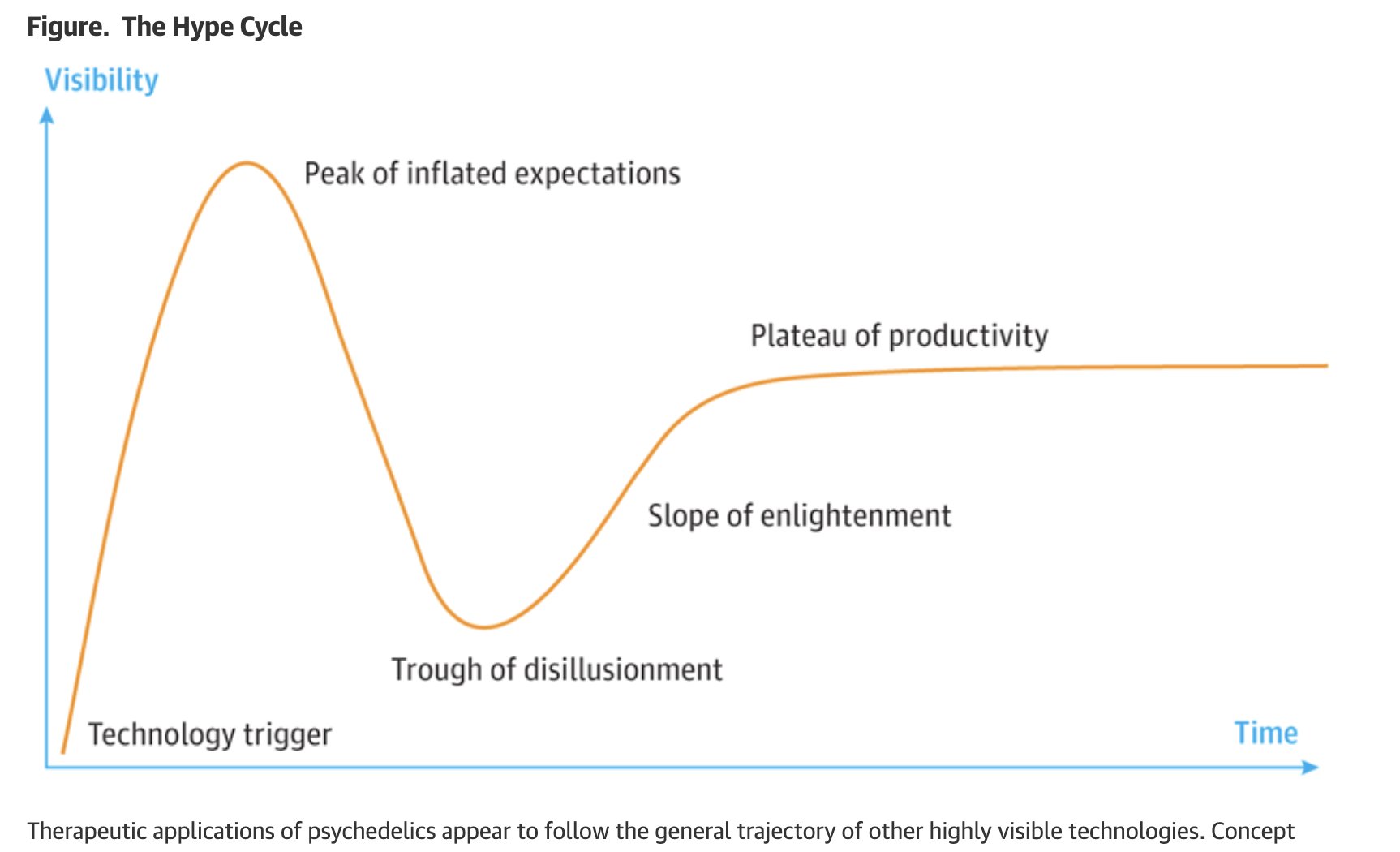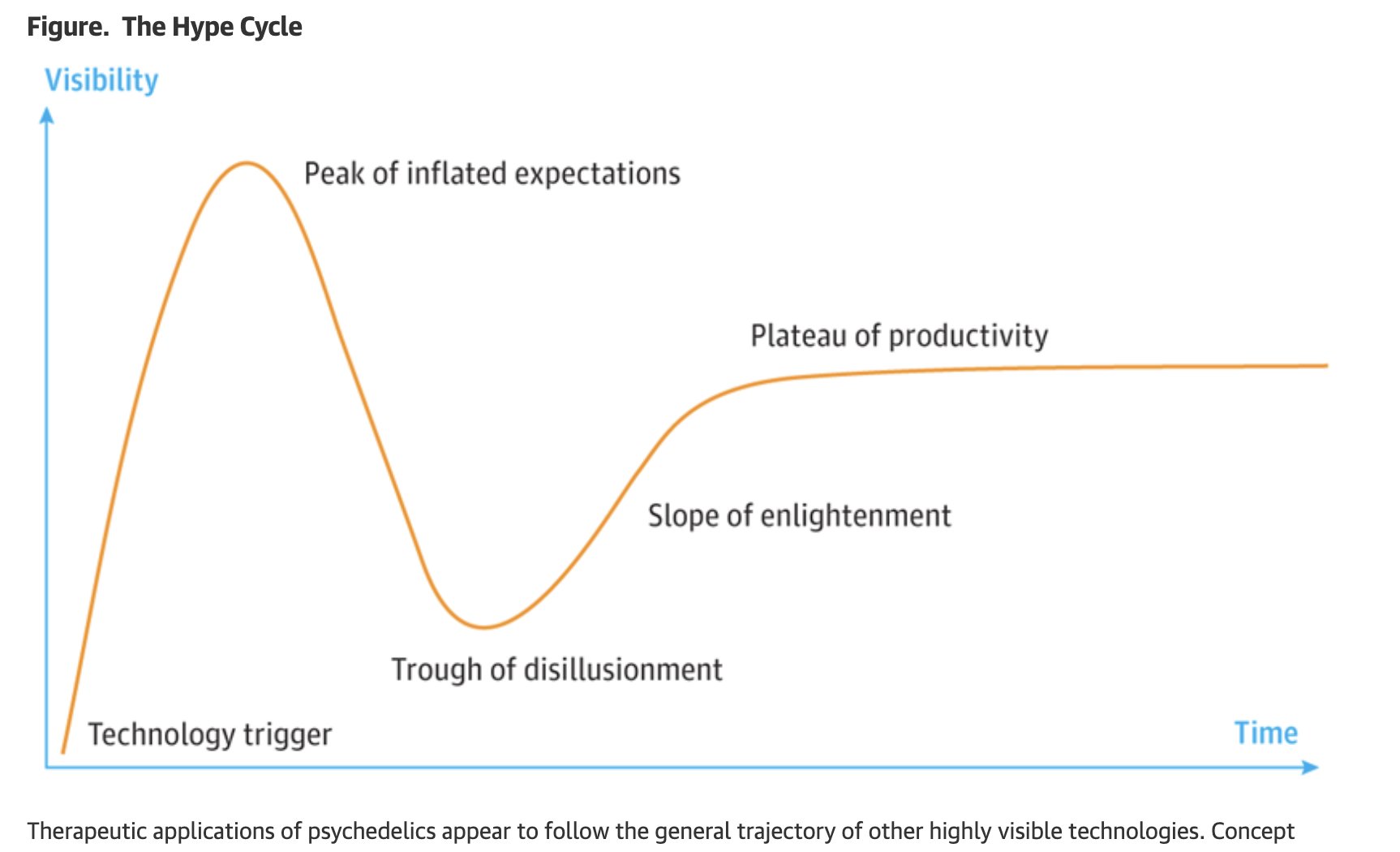Thread
Is the psychedelic hype bubble about to burst?
Might that be best for the field?
In a new @JAMAPsych article w/ me, @jpotash1, & R. Griffiths, we argue for moving beyond overly negative AND positive extremes to embrace the actual evidence
@JHPsychedelics
jamanetwork.com/journals/jamapsychiatry/fullarticle/2795948
Might that be best for the field?
In a new @JAMAPsych article w/ me, @jpotash1, & R. Griffiths, we argue for moving beyond overly negative AND positive extremes to embrace the actual evidence
@JHPsychedelics
jamanetwork.com/journals/jamapsychiatry/fullarticle/2795948
After decades of scare-mongering, in the past few years psychedelics have been promoted as miracle cures - both views are extreme and not grounded in the evidence.
We refer to “superenthusiasists” and “superskeptics”. These types are pretty easy to spot.
We refer to “superenthusiasists” and “superskeptics”. These types are pretty easy to spot.
The superenthusiasts are wrong to think that psychedelics are going to “cure” mental disorders or “solve” massive social issues. The evidence for some therapeutic and positive effect from psychedelics is probably real (I think), but of a much more humble magnitude.
Also, there are real risks to psychedelic use. Many of these risks are minimized in clinical settings, but even in clinical settings there are real risks (as there are with virtually every effective treatment).
pubmed.ncbi.nlm.nih.gov/27578767/
pubmed.ncbi.nlm.nih.gov/27578767/
The superskeptics are also wrong to think that psychedelics are extremely dangerous substances (eg holdover attitudes from drug war propaganda), or that there is NO good evidence for therapeutic potential. While bigger, better studies are needed,there is some signal from studies
“More research needed” is a rather bland statement that is almost a cliche in academic articles, but I think it’s an important statement to reiterate - and perhaps especially in the case of psychedelics. There are real reasons for optimism BUT more studies need to be done!
Here’s a question: do you think we are “pre-peak” or “post-peak” in terms of psychedelic hype? In this @JAMAPsych article, we argue that we're probably just cresting the peak.Deflating the hype would likely help to be better calibrated with the evidence...
jamanetwork.com/journals/jamapsychiatry/fullarticle/2795948
jamanetwork.com/journals/jamapsychiatry/fullarticle/2795948
But there's a real concern about blowback during the inevitable negativity in the "trough of disillusionment" when views may become unrealistically negative. We certainly don't want a repeat of repressive policies blocking research on psychedelics...
Psychedelics may follow the hype cycle that is often seen in new technologies w/ high visibility.We argue that the field would benefit from progressing beyond the positive hype AND past the negative repressive attitudes to a place that is well-calibrated with the actual evidence
We argue that there is a moral duty for scientists and clinicians to try to calibrate public understanding with the available evidence. We invite you to burst hype-y statements (both overly positive AND overly negative) when they appear.
Here’s hoping we can do better socially, clinically, and scientifically than the last period of psychedelic research. Part of that (maybe even a major part) seems to rest on calibrating expectations and assessments in line with the available evidence.
Psychedelics ask our society to do something that it’s not particularly good at: think in a nuanced way, integrate complexity, and remain grounded in the evidence. The extent to which we can get "ahead of the curve" on this will, I think, be important for the future of the field!
A special note of gratitude for @jpotash1, the chair of our department @HopkinsPsych, who is a great leader and role model in striking a balanced, evidence-based stance towards the potential of psychedelic treatments. Follow him for sensible & forward-looking takes on psychiatry-
Article from @WIRED on our @JAMAPsych article featuring Roland Griffiths @jpotash1 @drrosalindwatts @PhilCorlett1 @ManojDoss @FredBarrettPhD @NeseLSD and others-
www.wired.com/story/psychedelic-hype-bubble/
www.wired.com/story/psychedelic-hype-bubble/
Mentions
See All
Nick Gillespie @NickGillespie
·
Nov 16, 2022
Great thread from @ExistWell

